The ideologist of the Second World
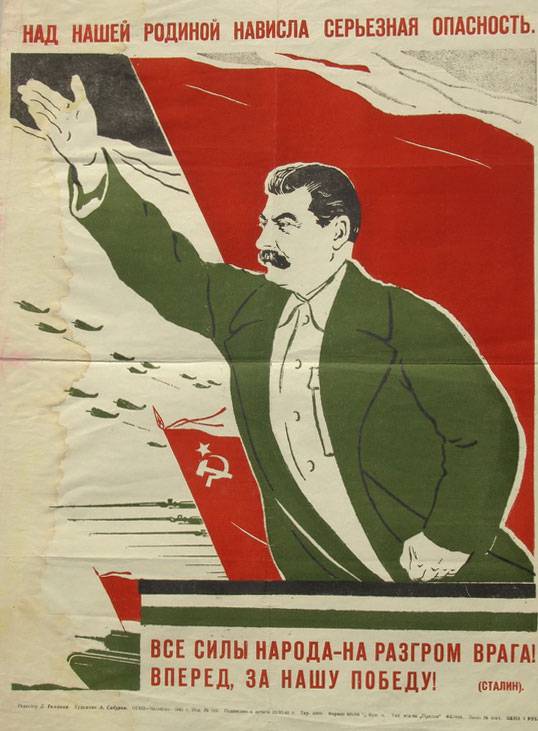
Severe and military strict was Moscow in the fall of 1941 of the year. Guarded, bristling with dolts and anti-tank hedgehogs, with barricades on the outskirts and embrasures in the walls of houses. Glass windows sealed crosswise with strips of paper. On the boulevards there are bunkers of anti-aircraft gunners and balloons prepared for ascent. Shop windows are littered with sandbags.
Ural and Siberian divisions were rushing towards the capital. The House of the People's Commissariat of Defense is painted with stripes of brown and dark brown paint.
In the corridor of the personnel department of GlavPUR, political workers were crowding in anticipation of appointments. Among them - the one and only woman of about forty. Medium height, dense, fair-haired, with light blue penetrating eyes. She is wearing a gray wool skirt and a knitted sweater. She keeps herself loose, at ease.
- Also gathered to fight? - asked her battalion commissioner Kravtsov.
Measuring the questioner with a close look, the woman answered, not without irony:
- Are you in doubt?
- No, why, - Kravtsov was embarrassed. - Call or voluntarily?
The woman did not have time to answer, she was called into the office.
“Sit down, Comrade Dubrovin,” said the personnel instructor, sullen, tired lieutenant colonel, and began to look at the questionnaire. - Are you the director of the children's publishing house? How many years worked in this position?
“Three years,” followed Lyudmila Viktorovna’s reply.
- So. What is the position to determine you? - the lieutenant colonel spoke in meditation.
- On any. Just send to the front, as Dubrovina stated about how long-standing and resolved.
- To the front, speak? - said personnel officer. “An editor for an army newspaper?” Moreover, this case is familiar to you.
“Then an agitator for the army’s political department.”
Lyudmila Viktorovna looked inquiringly at the lieutenant colonel.
- Sorry, but I do not quite imagine this job.
The lieutenant colonel explained that the agitator of the political department of the army is called upon to speak to fighters and commanders at rallies, make reports, conduct conversations, instruct grassroots agitators.
“These are mainly the duties of an agitator,” he concluded.
The word "mostly" alerted Dubrovin. It seemed to her that the personnel officer didn’t keep up something, perhaps, is silent about the most important thing that makes up the essence of the army’s agitator’s work. And she presented herself for a moment the situation at the front. Apparently, in the most tense moment before the attack, she would have to give an incendiary speech in order to inspire the fighters to a difficult battle with the Nazis. Will she be able to?
But it so happened that Dubrovin was not sent to the army’s political department, but was admitted to the GlavPUR agitators group, conferring the military rank of “major”. Lyudmila Viktorovna was aware that wearing a military uniform does not mean becoming a military.
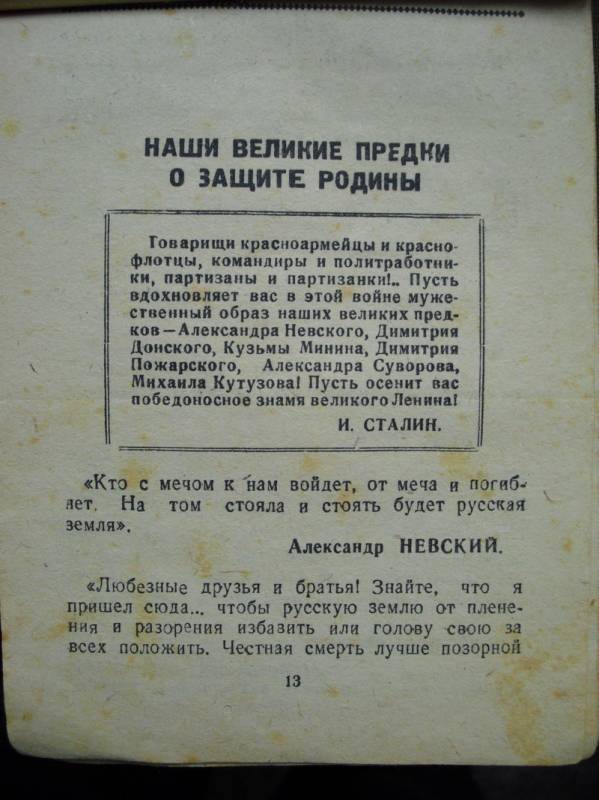
Dubrovina spent more than one day and evening on the charters, acquainted herself with the order of military service, and mastered military terminology. But this was not the main thing for her. She, as an agitator, an employee of the ideological front, had to work a lot to understand the situation on the fronts well, to grasp the essence of the international situation. The duty of the GlavPUR agitator imposed great responsibilities and made high demands.
Soon she was given two weeks to prepare a report on the current situation. Dubrovina diligently prepared, accumulated material, made extracts from primary sources, magazines, newspapers. Hone every thought, pondered, weighed every phrase. Her report was heard and approved in the Directorate of Propaganda and Agitation of GlavPUR.
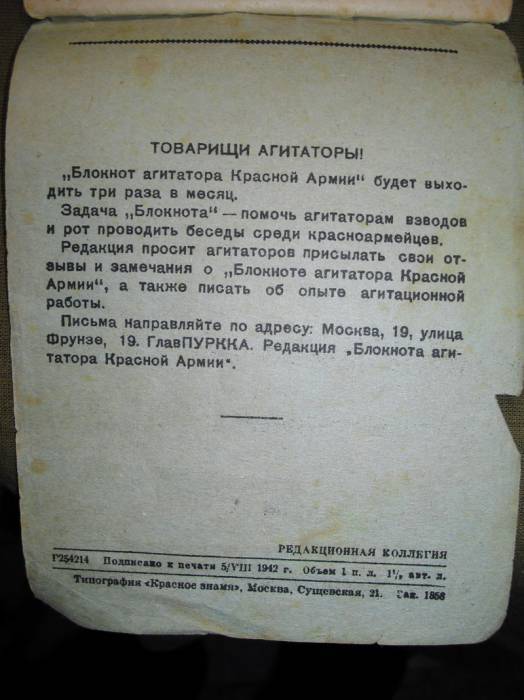
And here it is - the front. Northwestern. Deep autumn. Under the drizzling rain, after the submachine gunner, Major Dubrovin sneaks into the battalion. Shooting on the front with the habit of frightening her. With each shot, Lyudmila Viktorovna shudders, instinctively bends down to the ground, makes a rush following the example of a fighter.
The battalion was waiting for her. The dugout did not accommodate everyone to listen to the lecturer from Moscow. Many perched in front of the open door. In the jerky conversations, the searching glances of the fighters, there was a hidden excitement. Some families were in the occupied territory.
Lyudmila Viktorovna peered at the frowned faces of the crowd and thought: “How can I comfort them? Will it be easier tomorrow? Not! So, we must tell the truth, no matter how bitter it is. At the same time, we must instill faith in our final victory. ”
Dubrovin spoke about the most topical, quivering questions, about the situation on the Soviet-German front. Yes, the enemy is still moving east, she said. But everywhere he meets stubborn resistance, bears heavy losses in manpower and technology.
The fighters listened with great attention to the speaker, afraid to miss at least one word. They were particularly worried about the news that, despite the fact that Hitler’s troops were stationed at the walls of Moscow, according to the tradition, a solemn meeting was held in the capital
24-th anniversary of the October Revolution, at which Comrade Stalin spoke. The military parade was not canceled. And from the parade, from the walls of the ancient Kremlin, parts were sent directly to the front, which runs along the rivers Nara, Istra, along the Moscow-Volga canal, under Krukovo and Dubosekovo.
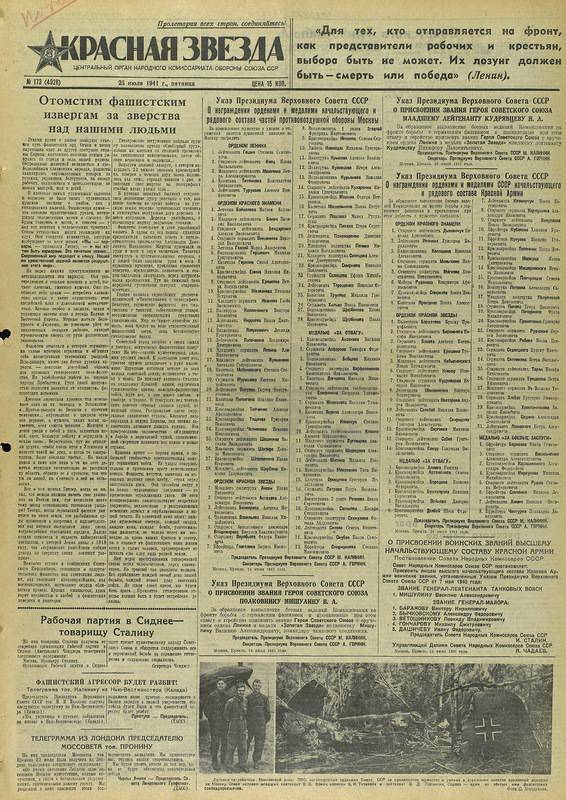
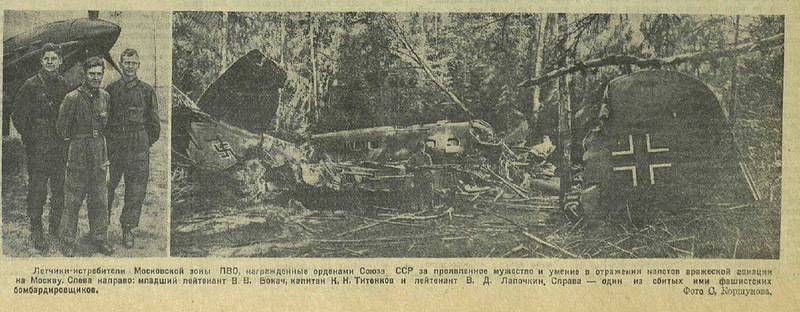
The report is over, but the fighters are in no hurry to disperse. After all, for the first time a rapporteur from GlavPUR came to them, to whom, if not to him, to ask for clarification of exciting questions. And they spill one after the other:
- How are things going in the rear?
- What is heard about the situation in the areas occupied by the fascists?
“Will the offensive soon begin?”
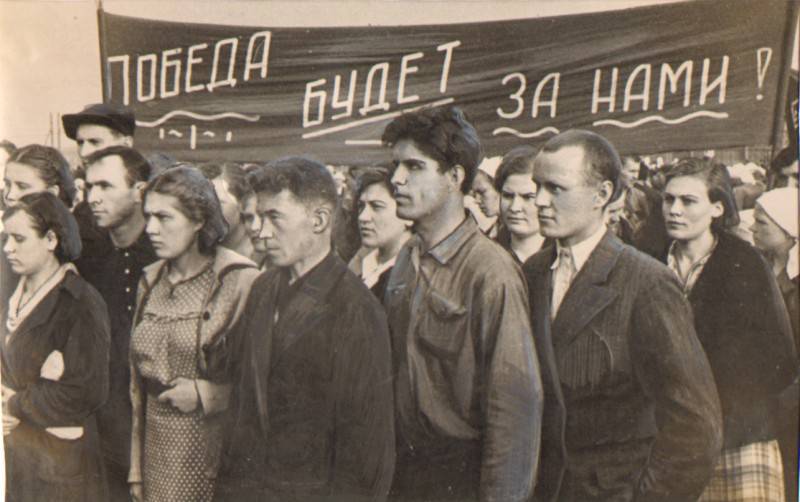
Dubrovina gives meticulous answers to questions, talks about how Moscow is intensively preparing for defense. Factories and factories work around the clock. Tens of thousands of Muscovites went to the construction of defensive lines. The troops are concentrated on the approaches to the capital. From the depths of the country are transports with weapons and ammunition. Day and night, there are recruiting stations at military enlistment offices. Thousands of Muscovites of different ages and professions go to the militia.
Our huge country has become a military camp. Everything is subordinated to the front, the defense of Moscow. The slogan “Death to the German invaders” put forward by the party has become the will of the whole people. And the stronger and fiercer our hatred of the Nazis, the faster we will win.
“Much will depend on you,” concludes Lyudmila Viktorovna. - After all, the more you pull away the Nazi troops, the more successfully the capital of our Motherland will be defended.
Toward the end, a short foreman approached Dubrovina. A little embarrassed, he said:
- Thank you very much, comrade major, for the report!
Voronezh Front. Summer 1942 of the year. In the morning, Lyudmila Viktorovna spoke to the propagandists and agitators of the front's political department with a report on the situation on the Soviet-German front.
In the evening, being in an artillery regiment, she spoke with his commander, Colonel Korzhenko. He was kind of sullen, internally strained. The other day German planes made a raid on artillery positions, during which the regiment commissar was killed. Korzhenko is very worried about the death of the commissioner.
“It was a wonderful political worker, a wonderful soul man,” he said with heartache.
But it was felt that not only this torments man. In conversation, he said:
- Lost somewhere wife with two children during the evacuation. I will not find. And this thought torments.
Dubrovina understood the pain Korzhenko.
- And yet you should not lose courage, Comrade Colonel. I'm sure your family will be there too. Give me your information about her, come to Moscow, try to make inquiries.
The regiment agitator entered and reported that the fighters had gathered, you can begin the report. Dubrovina rose.
- Will you come to the report, comrade colonel? She asked.
- By all means.
The regiment gathered on the side of a green lawn, under sprawling willows. The sun was already dropping below the horizon, dusk was falling.
“My report is about the international situation,” Lyudmila Viktorovna announced. And immediately she turned to highlighting the situation on the front, affairs in the world, about the growth of the forces of the anti-Hitler coalition, the growing military might of the Soviet Union.
After the report, Korzhenko approached her, thanked him heartily and, shaking Dubrovina’s hand, said:
- This is a good exercise for all of us.
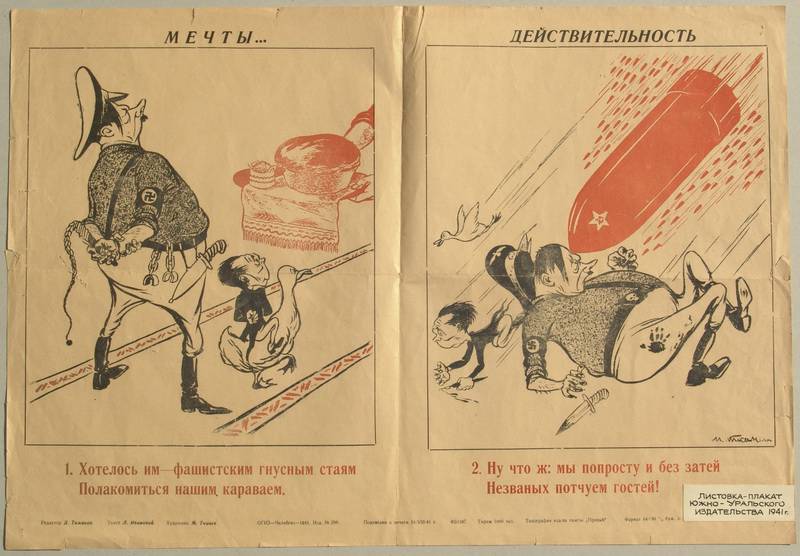
... At the Stalingrad front, the bloody battle has not stopped for the second month. Regardless of the heavy losses, the Nazis continue to storm the houses and streets of Stalingrad. Fights are distinguished by exceptional tenacity. With continuous counterattacks and counterattacks, the defenders of Stalingrad reflect the onslaught of the enemy, exhausting and destroying his manpower and equipment.
These days, when the enemy artillery was strenuously firing six-barreled mortars, Dubrovina was in the renowned 13 Guards Rifle Division of General A.I. Rodimtsev. The soldiers looked tired, blackened by smoke, but did not lose faith in their victory over the enemy. They swore to the Motherland to defend the city on the Volga, whatever the cost.
At the end of her conversation, Lyudmila Viktorovna asked:
- What to transfer to Muscovites?
- Thanks to them for weapon! Airplanes would be more.
Returning to Moscow, Lyudmila Viktorovna went to aviation the plant, made a report on the situation on the Stalingrad Front, conveyed greetings from the Stalingrad soldiers, and at the same time conveyed their request.
- We will help. So pass the fighters on occasion, the workers assured her.
July forty-three. On the eve of one of the greatest battles of the Great Patriotic War, Kursk, Lyudmila Viktorovna was on the South-Western Front. An army meeting was held in a dilapidated school in the village of Verkhnaya Dubrava. At the end of his work, it was announced that after a short break, a report on the international situation would take place.
After the break, the meeting re-occupied seats at school desks. On the presidium, together with the head of the army’s political department, was a woman in the rank of lieutenant colonel with the Order of the Red Banner on a gabardine tunic. One of the officers skeptically dropped:
- Woman, what to expect from her!
“I seem to have met this woman somewhere,” said his neighbor, Colonel Kravtsov, the head of the political department of the rifle division, uncertainly.
When the head of the army gave the floor to the speaker, she took out the leaflets from the field bag and put them in front of her. She invited her light brown hair with her hand, looked at everyone and confidently began the report:
- Comrades! You, of course, could not help but notice that for quite a long time in the reports of the Soviet Information Bureau it is invariably noted that nothing substantial happened on the Soviet-German front.
Consistently revealing the situation created on the fronts, Dubrovina gradually captured the attention of the audience. And the further, the more conquered the officers with their utmost conviction. The report was already listened with unflagging interest. The skeptic colonel, leaning towards Kravtsov, said embarrassedly: “This is a woman, I will tell you. Not expected!"
Many then drew attention to the fact that the speaker only shifted the sheets lying in front of her, without looking at them once. The lecturer's voice was sonorous, soft, pleasant. The speech flowed smoothly, without any pauses and hitches.
And Kravtsov was still painfully digging into his memory: where did he see her? And then he remembered. "In the personnel department of GlavPUR, in forty-first."
After the report, Kravtsov approached Dubrovina and reminded her of the meeting.
“Although you were then in civilian dress, but I recognized you all the same.”
“Your memory is tenacious, comrade colonel,” smiled Lyudmila Viktorovna.
- Are you satisfied with your appointment and work? - asked Kravtsov.
- I like the work of an agitator; I don’t think differently. - And then she asked: - How do you find my report? Just tell me honestly.
Kravtsov smiled. After a while he replied:
- I had to listen to many internationals. Some speak effectively, but empty. In a word, water is pounded in a mortar. Others appear monotonous, dull, sluggish, without a soul and a twinkle. But there are temperamental speakers, speak convincingly, in a lively language, passionately, evoke thoughts, thoughts, strike a spark. I refer you to the speakers of this category.
Dubrovina’s tanned face was touched by a smile.
- You are a gifted speaker. You have another propagandist quality - the power of logic, with the help of which you capture the audience and hold it tightly. I envy you in a good way, - concluded Kravtsov.
Lyudmila Viktorovna answered this:
- You exaggerate my abilities. Agitation and propaganda work must love and give her all their knowledge. And - learn, learn. Only then will success come.
A few years after the war, Kravtsov read in Izvestia an article on the formulation of teaching in schools. Under the article was a signature - L. Dubrovin. It was not difficult to guess that it was Lyudmila Viktorovna. So, she left the army and is now working in the educational system?
A month later they met in the Central House of the Soviet Army. And although the temples of the former lecturer had already been touched by gray hair, Lyudmila Viktorovna didn’t look youthful in her age, just as cheerful and cheerful.
- Have you already changed your military uniform to a civilian dress? - greeting her, asked Kravtsov.
“Do you think it was easy for me?” - she smiled. - At first, I was very sad about the front-line comrades, military political workers. Pulls me to the army now. And when I get into the military environment, I feel younger. No, really! I remember my trips to the fronts, but I had to go to everybody for the war more than once. Yes, it seems it was all very recently, and so many peaceful years have passed!
- Lyudmila Viktorovna, read your article in "Izvestia". Where do you work now? - Kravtsov asked with interest.
- In the Ministry of Education of the RSFSR.
- I thought so. By whom?
- Deputy Minister of Education.
- All the same ideological front?
“All the same,” she said, smiling.
The conversation had to be interrupted. Lyudmila Viktorovna was invited to the presidium of the meeting.
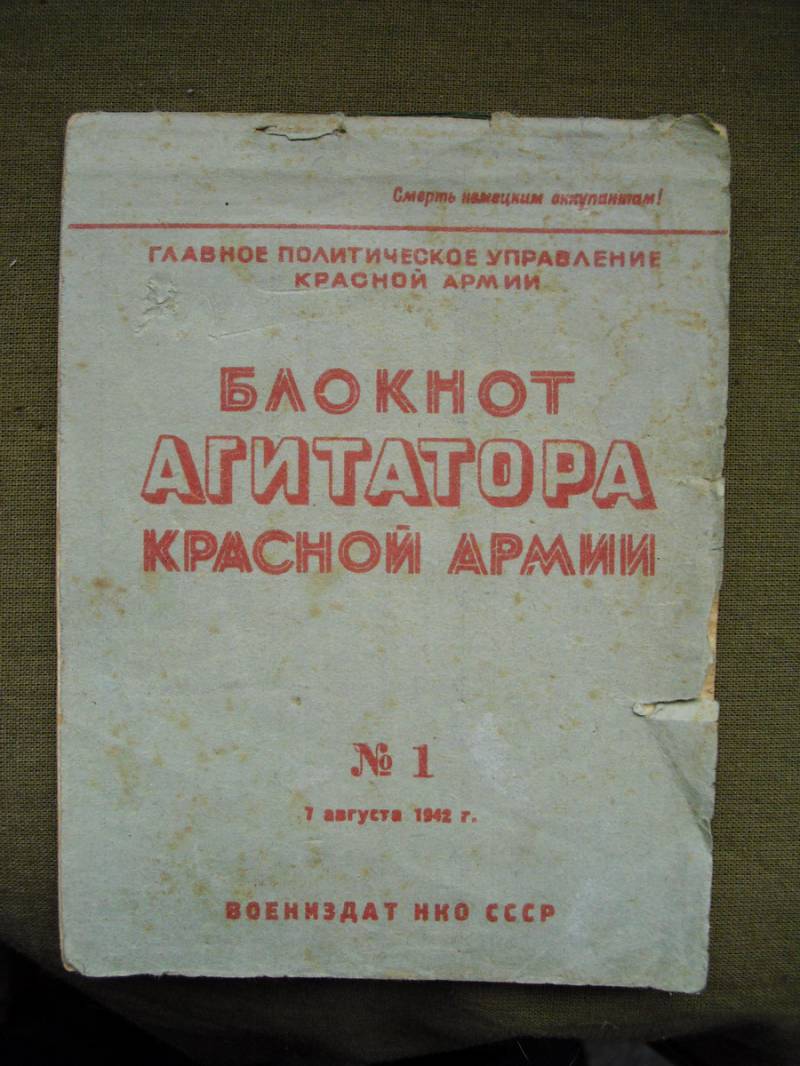
Information